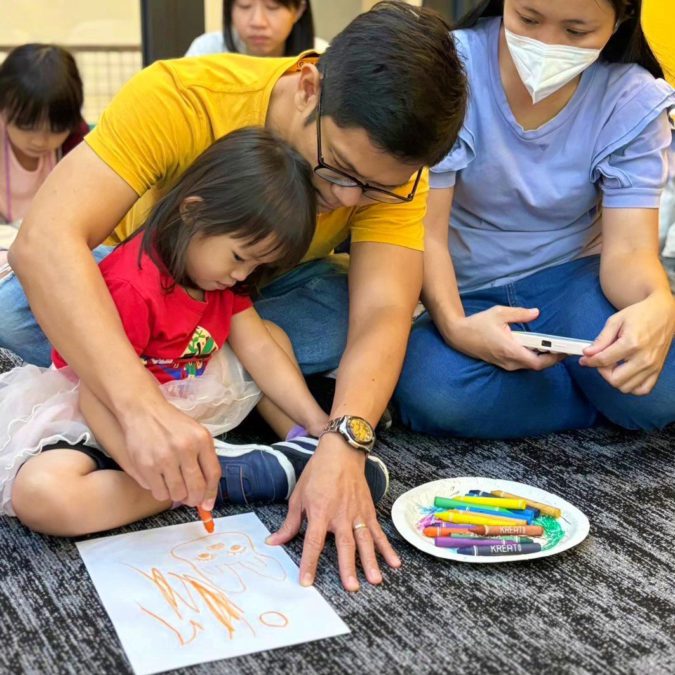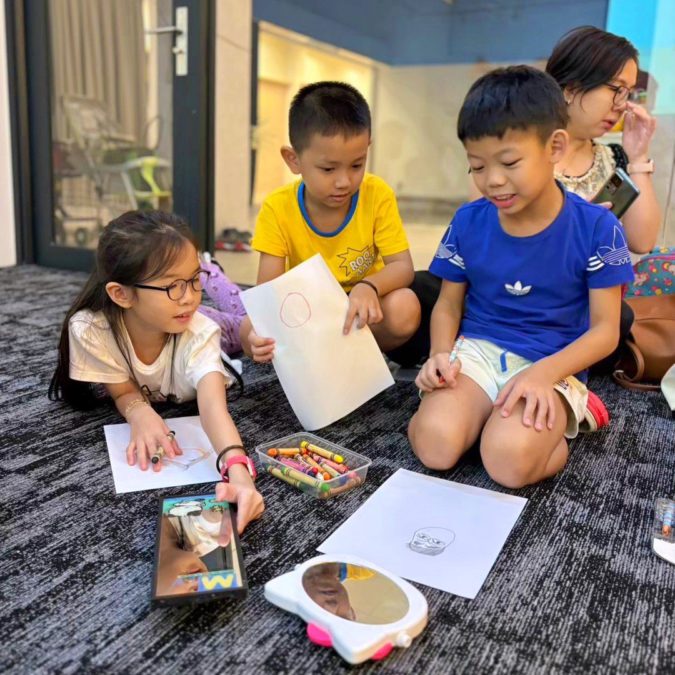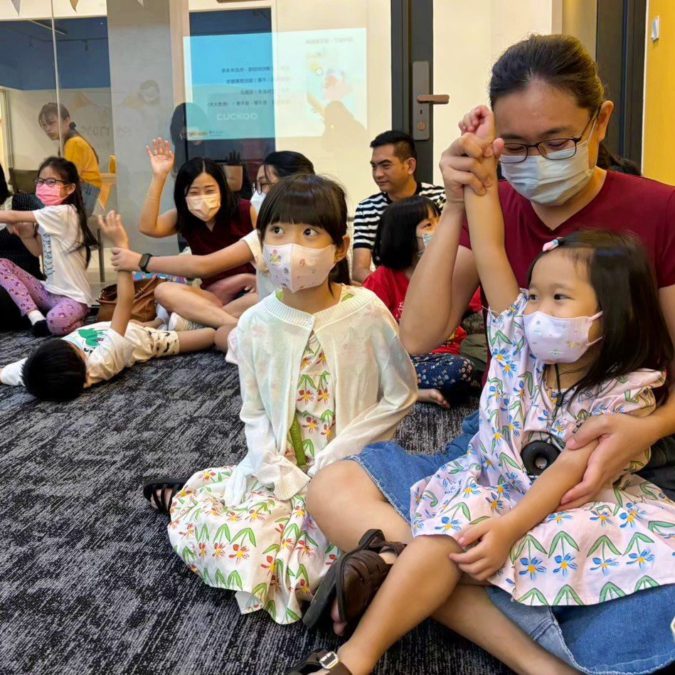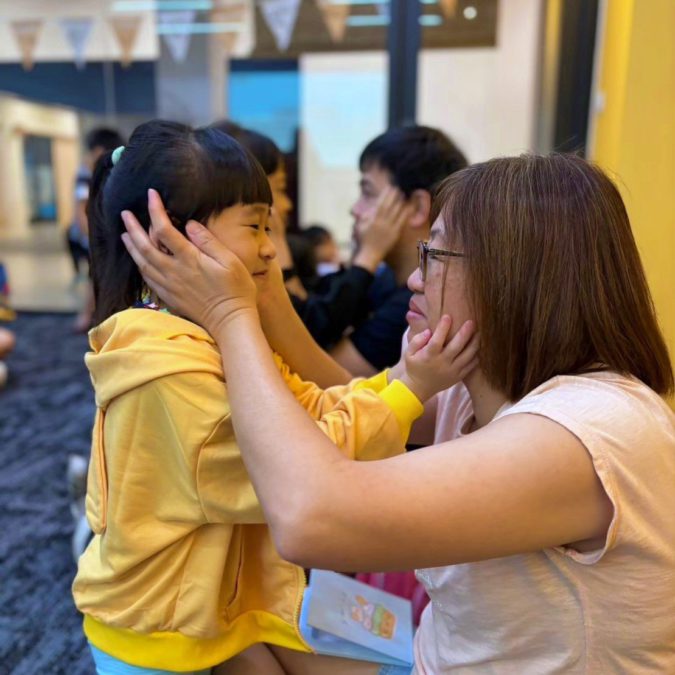What is Social and Emotional Learning (SEL)?It is closely related to children’s academic learning and career development. High EQ begins with understanding one’s own emotions.
Have you heard of social emotions? Social emotions are an important topic in the process of children’s growth, and their levels can potentially impact various aspects of children’s lives.
Will they excel in academic performance?
Will they be able to establish good relationships with peers?
Can they control their impulses?
Do they make decisions thoughtfully and carefully? 🤔
Social and Emotional Learning (SEL) has become a prominent educational trend in recent years. It emphasizes the importance of children recognizing, expressing, and understanding themselves at an early age, and discovering the close relationship between feelings and behaviors.
What is SEL?
Social emotions are emotions that depend on the thoughts, feelings, and actions of others and are the product of social interactions. Common social emotions include shame, embarrassment, guilt, sympathy, jealousy, and pride. These emotions are also known as moral emotions because some of them play a role in moral functioning.
Around the age of 2 to 3, children begin to express emotions such as guilt and remorse. Research from the Harvard Center on the Developing Child also indicates that childhood is a critical period when the brain’s ability to change through experiential learning is at its peak, while the effort required for change is minimal. Therefore, cultivating SEL skills from a young age can significantly contribute to future development.

Social and Emotional Learning (SEL) is a concept introduced by the Collaborative for Academic, Social, and Emotional Learning (CASEL) in the United States. It falls under the category of emotional education and starts with basic self-awareness. SEL helps children understand their own and others’ emotions, practice stress management, develop empathy and social skills, and attempt to connect with others, fostering positive interactions and cooperation.
Learning SEL has no age limit; it is a vital lifelong lesson that emphasizes creating an environment of empathy, respect, care, and love. In addition to focusing on emotional intelligence (EQ) and emotions, SEL also values interpersonal interactions and achieving personal goals. CASEL has identified five key components of SEL, which are taught to build core competencies. The aim is for children to naturally integrate these skills into their daily lives from a young age.
The five core concepts of Social and Emotional Learning (SEL)
- Self-Awareness
Self-awareness emphasizes understanding oneself. It involves recognizing and comprehending how emotions influence oneself, as well as understanding and accepting one’s strengths and weaknesses, values, biases, and stereotypes. Additionally, it includes being aware of one’s social status and value within different groups, understanding how one’s actions affect others, and maintaining a growth mindset, always believing that one’s future is in their own hands.
- Self-Management
Self-management involves having the ability to execute tasks effectively. Even when facing frustration or pressure, one can stabilize their emotions and adjust to a balanced state. It also includes the capability to modify plans based on environmental information and realities, maintaining high levels of focus, and persistently moving toward self-set goals.
- Social Awareness
Social awareness involves showing empathy and compassion, recognizing and caring about others’ feelings, and respecting people from different families, cultures, and social backgrounds. It also includes being open to learning from diverse perspectives and appreciating different social norms and cultural differences.
- Relationship Skills
Relationship skills include having strong communication abilities, building harmonious cooperative relationships with people from diverse cultural backgrounds, and managing conflicts by listening to all sides and discussing peacefully. It also involves establishing and maintaining long-term, positive relationships, and creating environments where everyone benefits.
- Responsible Decision-Making
Responsible decision-making involves the ability to investigate problems, gather information from various sources, and propose appropriate solutions based on a comprehensive consideration of different interests. It also means being willing to accept and take responsibility for the outcomes of decisions and continually reflecting on and improving oneself and the group.
Why is SEL Important?
Experiencing situations like wetting pants in front of classmates, falling and embarrassing oneself, feeling unmet love, or competing for attention with siblings can create significant psychological stress for young children. This stress often stems from not understanding the emotions they are experiencing or not knowing how to handle others’ reactions. If adults do not provide appropriate and supportive responses during these moments, it can lead to a breach of trust between the child and the adults involved. 💔

The same issues extend into adulthood. During their academic years, students may face external pressures such as academic challenges and bullying. According to the 2018 Programme for International Student Assessment (PISA), while Taiwanese students ranked fifth globally in math skills, they had the highest fear of failure. This indicates that although Taiwanese students perform well academically, they are extremely concerned about failure, which leads to significant anxiety about others’ opinions and self-doubt regarding their abilities and goals.As they transition into the workforce, they may encounter existential uncertainty and struggle with adapting to external pressures and resolving internal conflicts.
Social and Emotional Learning (SEL) can help individuals maintain inner peace and courage when facing misunderstood pressures from others. SEL supports people in understanding and managing their own emotions, actively seeking appropriate support from others, and extending empathy to others. This process helps create a harmonious and positive social environment.
Why do children need Social and Emotional Learning (SEL)?
Parenting education expert Yang Lirong believes that issues such as depression, emotional outbursts, and conflicts in school and family settings, as well as interpersonal relationship problems, are related to the long-neglected “non-cognitive skills.” Whether referred to as character development, emotional education, or SEL, when children cannot understand their emotions or build positive relationships, it impacts their future academic and career prospects.
SEL provides a comprehensive framework that integrates traditional emotional education with non-cognitive skills. It guides children through a systematic approach, making the learning of non-cognitive skills structured, sequential, and replicable. As a result, SEL is globally favored and seen as a solution for addressing future crises faced by children and adolescents.
How and Where can we learn Social and Emotional Learning
SEL in the Classroom

Many international organizations are increasingly focusing on emotional education. For example, CASEL has implemented the concept of SEL both inside and outside the classroom, creating an ecosystem where all children can receive social and emotional learning along with high-quality education. CASEL has outlined the SAFE criteria for effective SEL teaching:
- Sequenced (S): The curriculum should be designed to progress from simple to complex, gradually adjusting the difficulty, and using repetitive reinforcement to ensure effective learning.
- Active (A): Engage children in meaningful SEL experiences both inside and outside the classroom, and encourage them to actively apply what they learn in their daily lives.
- Focused (F): Each SEL session should be highly focused and dedicated, which enhances the effectiveness of the learning.
- Explicit (E): Clearly explain to children the benefits of learning emotional education and where it can be applied.
In Taiwan, the government has incorporated emotional education into teaching practices with the aim of creating a diverse learning environment where children can understand their own emotions, empathize with others, and practice care and cooperation. To integrate these concepts into the classroom, extensive cross-disciplinary and curriculum collaboration is required. This involves systematic adjustments and arrangements for curriculum design, homeroom management, classroom culture, and school environment, with professional teacher training programs assisting educators in applying these methods. Additionally, collaborations between schools and external organizations, such as KIST (KIPP-Inspired School in Taiwan), Teach For Taiwan (TFT), and the Chengzhi Education Foundation, are commonly seen in Taiwan.
Examples of Social and Emotional Learning (SEL)
Several Taiwanese corporate foundations have collaborated on various projects to encourage participation among teachers and students. For example, Tong an Elementary School and Nanshou Elementary School in Pingtung County have long been involved in the “Great Wave Support” project initiated by the Taiwan Good Foundation. In recent years, these foundations have partnered with the MediaTek Education Foundation to introduce the Taiwanese emotional education brand “skidschool.” This program uses card-based tabletop games to transform common scenarios from family, school, and public spaces into text-free emotion cards, which are then incorporated into classroom teaching to create a cohesive curriculum plan.
(Source: Facebook Page of 台湾好基金会 x 大潮.南扎根计画, 2023)
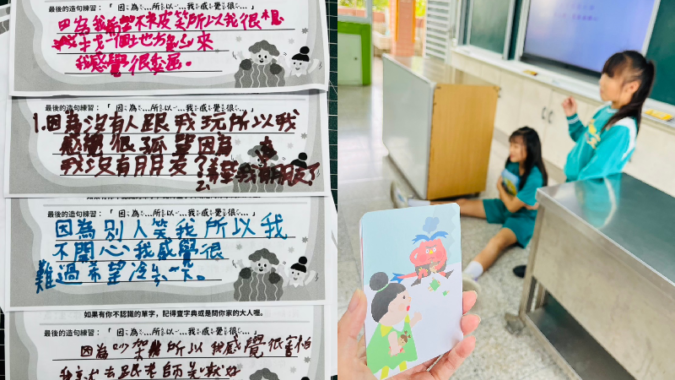
Image provided by Chen Ziqian (Teacher Cho cho), CEO and Founder of S skidschool.
☀️ Skids.MY|SEL Class

